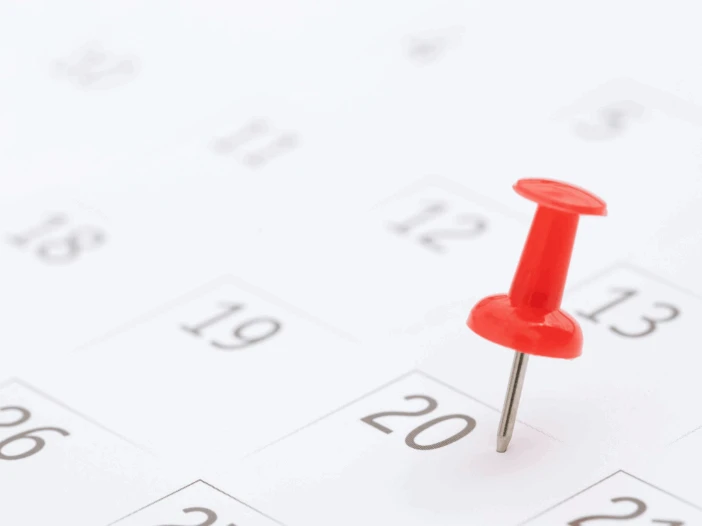
Table of Contents
ToggleIf you receive Social Security Disability Insurance (SSDI) benefits, you know how important that monthly check is. For many, it helps pay rent, buy groceries, and cover daily expenses. But knowing when you will get paid can feel confusing.
At Collins Price, we help people across the country get and keep their disability benefits. In this guide, we’ll break down the Social Security Disability payment schedule in simple terms. You’ll learn how payment dates are decided, how to plan around them, and what to do if your payment is late.
What Is the Social Security Disability Payment Schedule?
First, let’s answer a big question: What is the Social Security Disability payment schedule?
The payment schedule is the calendar the Social Security Administration (SSA) uses to send out SSDI checks each month. When you get your money depends on:
-
When you were born
-
The type of benefit you receive
-
Whether you also get Supplemental Security Income (SSI)
Knowing this schedule helps you plan your budget, pay your bills on time, and avoid surprises.
How Does Social Security Decide When to Pay Me?
For SSDI, the SSA uses your birthday to pick your payment day. Here’s how it works:
-
If you were born on the 1st through the 10th of the month, you usually get paid on the second Wednesday of each month.
-
If you were born on the 11th through the 20th, you get paid on the third Wednesday of each month.
-
If you were born on the 21st through the 31st, you get paid on the fourth Wednesday of each month.
For example: If your birthday is July 8, your SSDI payment should arrive on the second Wednesday every month.
This helps the SSA spread payments out instead of paying everyone on the same day.
What If I Get SSI Too?
Some people get both SSDI and SSI. If you do, your SSI payment comes on the first of the month, and your SSDI payment comes based on your birthday, like above.
If the first falls on a weekend or holiday, SSI is paid the business day before. So, if the first is a Sunday, you should get your money on Friday.
How Do I Know My Exact Payment Dates?
It helps to look ahead so you don’t run short on cash.
Each year, the SSA publishes a payment calendar showing the exact dates for every month. You can see the full schedule at SSA.gov.
To make it easy, many people mark their payment days on a calendar or set phone reminders. If you have online banking, you can also set up alerts to know when your money hits your account.
How Will I Get Paid?
Most people get SSDI through direct deposit to a bank account or a prepaid debit card called the Direct Express® card.
Direct deposit is usually the fastest and safest option. If you get a paper check, delivery may take a few days longer.
If you don’t have a bank account, you can sign up for the Direct Express® card through the SSA. It works like a regular debit card.
Why Might My Payment Be Late?
Sometimes payments can be late. Here are some common reasons:
-
Holidays: Federal holidays may delay payments by a day or two.
-
Bank delays: Your bank might hold a deposit if there’s an issue with your account.
-
Updated information: If you recently changed banks or addresses, payments may get held up.
-
SSA errors: Mistakes happen, but they are rare.
If your payment is more than three days late, call the SSA at 1-800-772-1213. They can track it down.
What If I Need to Change My Bank or Address?
If you change banks, update your direct deposit as soon as possible. You can do this online at ssa.gov or by calling the SSA.
It’s also important to keep your mailing address up to date, even if you get direct deposit. SSA uses your address to mail important forms and notices.
How Much Will I Get Paid Each Month?
SSDI payments depend on your work history and how much you paid into Social Security. The average SSDI benefit in 2025 is about $1,580 a month, but some people get more and some get less.
If you have dependents, like minor children, they may also qualify for extra payments. These are called auxiliary benefits.
Want to see how much you might get? The SSA has an online tool called the Benefit Eligibility Screening Tool (BEST).
What Should I Do If My Payment Stops?
Sometimes the SSA may stop payments if they think your health has improved or you went back to work.
If this happens, don’t panic. Many people successfully appeal a decision and payments resume. Those who do not have a successful appeal are typically in a position where they can return to work on a full-time basis.
Learn more about what to do if your claim is denied in this helpful post on our blog.
Tips to Manage Your SSDI Money
Getting your SSDI payment on time is important, but so is managing it well. Here are a few tips:
-
Make a budget. Write down your monthly expenses and compare them to your benefit amount.
-
Pay bills on time. Set up automatic payments for rent, utilities, or phone bills.
-
Build a small emergency fund. If you can, try to save a little each month to cover surprise costs.
-
Watch for scams. The SSA will never call you to demand money or your Social Security number. Hang up on scammers.
What Happens If I Go Back to Work?
Some people feel well enough to try working again. That’s great — but it can affect your SSDI payments.
The SSA has programs like the Trial Work Period (TWP) and Ticket to Work that let you test working while keeping benefits for a limited time.
If you’re thinking about working again, read this guide on returning to work so you don’t lose benefits by mistake.
Frequently Asked Questions
1. Do SSDI payments ever come early?
Yes. If your payment date falls on a holiday, it usually comes the day before.
2. Do I pay taxes on my SSDI payments?
Some people do. If you have other income, like wages or a pension, part of your SSDI may be taxable.
3. How do I check my payment status?
Use your my Social Security account at ssa.gov or call the SSA.
4. Can SSDI payments change?
Yes. The SSA adjusts benefits each year for inflation through a cost-of-living adjustment (COLA). In 2024, benefits increased by 3.2%.
5. What should I do if I move states?
Contact the SSA and update your address so you don’t miss important mail or payments.
Final Thoughts
Knowing your Social Security Disability payment schedule is key to staying on top of your finances. Mark your payment days, keep your bank info current, and call the SSA if anything seems off.
If you’re facing a problem with your SSDI — like a denied claim, an overpayment, or a payment that stopped — don’t wait to get help.
At Collins Price, we help people just like you navigate the Social Security Disability process from start to finish. Read more about our Social Security Disability attorneys and contact us if you’re considering hiring a disability lawyer to work on your SSDI or SSI claim. There’s never any fee for our services unless we win your claim, and no obligation to hire us following your free consultation.
Ready for help with your SSDI case? Contact us today for a free consultation on your claim.
This post is for educational purposes only and should not be considered legal advice. Please consult with a qualified attorney for personalized help with your disability claim.



